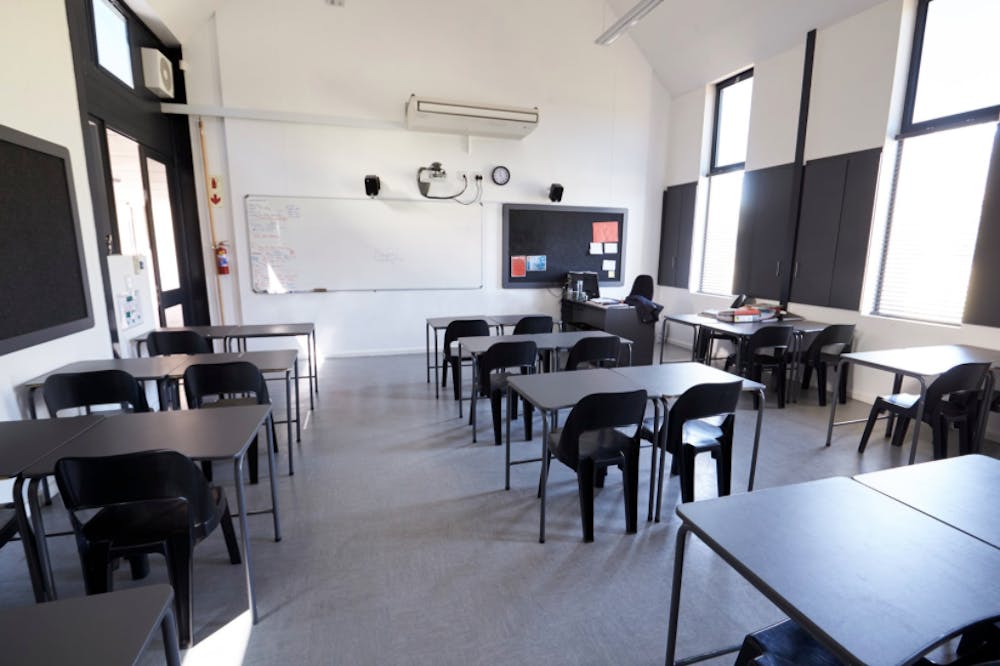By Elliott Nguyen
Staff Writer
After more than a year of social distancing, mask wearing and virtual learning, current and incoming students are curious about how the future of the pandemic will affect the chances of the College and other schools continuing to expand in-person activities in the coming fall.
A recent email from the College’s administration, which comes as a large-scale vaccine rollout across the state is bringing hope for a light at the end of the tunnel, announced that “The ‘Instruction Mode’ for Fall 2021 classes is expected to return fully to in-person instruction, except for those classes and programs that were designated as online or blended as their regular delivery mode.”
“If President Biden is correct that he’s going to have enough vaccines… for all adults by the end of May… I would think that we would be able to resume classes. I would hope so,” said Dr. Brenda Seals, an associate professor of public health at the College. “I really miss the classroom. … I think everybody’s been struggling.”
Jonathan Davis, an associate professor of education at the College, expressed excitement but cautioned that a return to in-person instruction would not mean classes without restrictions.
“I have no way of predicting the future. I also am hopeful that come fall we will have reached herd immunity, and therefore it will be safe for us to return to campus in the fall while still using CDC precautions,” Davis said. “People still need to understand we’re not out of the clear – we still need to be safe about how we do things. We’ll still be in masks, still need to be washing our hands.”

While many may be looking forward to a full reopening, the past year spent online may create a transition period where students, professors and administrators alike take time to get their bearings.
“My biggest concern in many ways is that the current freshman class, they really haven’t gotten the TCNJ experience,” said Seals, who expressed concerns that necessary safety protocols have left freshmen unable to form bonds with the campus and the community.
“In terms of preparation, it’s not necessarily academic preparation. It’s going to be more understanding that when we return, we’re all coming back with our own baggage,” Davis said.
When asked what steps the school should take to address such issues, he said “Building of classroom community and culture. Creating spaces where we’re thinking about people’s social and emotional wellbeing.”
The return presents an especially daunting prospect for many current high school seniors, who will have to quickly adjust to college life on top of a return to in-person learning in just a few short months.
“I think that this past year has really affected everyone’s social skills, so I’m worried about making friends, especially since I was a little shy even before the pandemic,” said Sara Zilinski, a senior at Colts Neck High School who expressed interest in studying education at the College.
However, she added, “I think going back to in-person classes will be weird at first but will ultimately be a good change. I just have to remind myself that we’re all in the same boat… I’m really excited to meet new people, make new friends and get back into a more normal school routine.”
When asked what changes students could see when they return to campus, Seals suggested that there may be a benefit to retaining online learning as an option in some capacity. “I know that there are a lot of professors who’ve gotten really accustomed to teaching online. I respect that idea that they don’t want to come back to the classroom and right now they’re feeling forced. And that’s not going to be good for anybody; everybody should be able to take advantage of the teaching environment they want.”
She added that the new technology available, if implemented for the long-term, would make college more accessible to students with physical disabilities that make it difficult for them to attend in-person classes.
Davis agreed. “I think that’s one hundred percent accurate. The silver lining of virtual learning is… because people are more used to it, and because the College invested in the technology to allow for this model, when students may be at high risk and it’s not safe for them to come or there are other factors, there now are ways to make class more accessible.”
He stressed that this next year will be a “healing year.”
“I can’t tell you how many of my students have had significant losses this year,” Davis said. “It’s really important for faculty to understand… we’re not living in the same world.”







